- Home
- Michael Dobbs
The Lords' Day (retail) Page 6
The Lords' Day (retail) Read online
Page 6
He stared at the cold, formal response – so different from just twelve hours ago in the lift. It was clear that her heart wasn’t in it. She was playing a game, and forcing him to play along, too, at least until Friday morning.
He began punching buttons. ‘Looking forward to it,’ he began, then hesitated before adding: ‘Sorry about this morning.’ He didn’t mean it, of course, but his training screamed for caution. He knew his anger, if left raw and unrestrained, would play into her hands, all the way up the steps of the divorce court, so buck up, Harry, fight the battle on your ground, not hers, if you can. And yet it was a battle he didn’t want and couldn’t win. It seemed such a waste, a marriage over in a morning. One bastard of a day. And as he looked up, he saw that he had lost the moment. The entrance to the Lords with its exquisite, one-and-a-half-ton brass doors designed by Pugin was now awash with MPs trying to peer over the shoulders of those in front. No more room at the inn. Bollocks. Still, it just couldn’t get any worse. Not unless the Ivy was fully booked. He decided he’d better call the restaurant and see if he could claim at least one small victory.
11.38 a.m.
From the back of the Chamber a doorkeeper lifted his head to indicate that the MPs behind the Bar had settled. This signal was picked up by the Earl Marshal, who in turn nodded to the Lord Chancellor. In dark black cloak and wig he stepped slowly forward and began mounting the steps to the Throne. He was a portly figure, not as agile as once he was, and he trod with considerable caution. Not the moment to stumble. In his right hand he held an embroidered purse that held the speech, and with suitable humility, he withdrew it and handed it to his sovereign. She offered a barely perceptible nod.
She gazed at the booklet she had been handed. The Queen’s Speech, yet not a word of it her own. She prepared herself, but first turned to her son, sitting beside her. This was a deliberate gesture, full of symbolism. She wanted to remind them that soon, in God’s time, he would be here, in her place, and he had waited so long already, almost longer than any other heir in British history. It was why she had brought him here today, kept him at her side so that people could grow accustomed to the idea. Charles. On the throne. Perhaps they would never grow to love him, but they might yet learn to accept him, and he to be at ease with them.
It was time. She looked over her glasses, and every one of the three hundred-and-sixty-two souls crowded into this one room returned her gaze.
‘My Lords and members of the House of Commons. My Government will—’ She hesitated. Her eye was being dragged away from the letters on the page. A little to her right, close at hand, she became aware that there was some form of disturbance . . .
Three
11.42 a.m.
IT WASN’T THE FIRST TIME that Elizabeth had felt threatened. When she was a young girl there’d been all those bloody Luftwaffe bombers, dropping incendiaries and high explosives on the palace. Made a mess of the swimming pool. And she’d been shot at six times in the Mall while riding her horse towards the Trooping of the Colour. She’d ducked, patted her horse, and ridden on, unaware that the shots were blanks. Then had come the bizarre moment when she had woken to find a strange young man sitting on her bed. He said his name was Michael Fagan and he asked for a cigarette. She had pressed the alarm button, but no one answered; apparently the bell couldn’t be heard above the noise of a vacuum cleaner. She’d made two telephone calls for help, but still no one came. So she had sat and chatted to the young schizophrenic until she was able to persuade him that she had no cigarettes and they should go into the corridor to search for some. It turned out that the young man had scaled the walls of the palace and simply begun walking around. He’d been seen, of course, but mistaken for a workman, even though he was in bare feet. Once inside the cordon of walls and wire, no one had asked. It seemed that everyone had jumped to the same conclusion: if you’re inside the tent, they expect you to be pissing out, not over each other. The official report had described the security of the palace as diabolical – Prince Philip had used considerably more robust language – and surely all those lessons had been taken to heart and acted upon. Hadn’t they?
Security is a state of mind, a sense of well-being, and all had been well in the Lords ever since they had dragged off Guy Fawkes and butchered him. So it was difficult to believe what was now taking place in front of them. The High Commissioner of Pakistan had risen to his feet and was waving what seemed, even to the untrained eye, something suspiciously like a small assault rifle, and which to those with more experience in these matters looked exactly like a Kalashnikov AK-102. With its side-folded butt it was less than two feet in length, had a magazine that held thirty rounds and could fire every single one of them off in three seconds. It was a most awesome weapon for use in confined spaces, and every inch of it easily concealed beneath the ambassador’s colourful national dress. Much to the surprise of those around him who had seen him arrive as a frail, overweight envoy, he appeared to have been transformed into a noisy and even agile demonstrator who was leaping from his place on the diplomatic benches, only feet from the Throne. And it was that measure of surprise that gave him the advantage. The only people between him and the Queen were elderly officials who had their back to him; with a shove he sent them sprawling to the floor. There was a royal protection officer inside the chamber, but he was standing in the shadows at the other side of the chamber. He was as surprised as everyone else. It took only a moment for him to recover his wits, but in that single moment the Pakistani had already reached the steps before the throne and was standing upon the embroidered train that the page-boys had laid out so carefully, and which now pointed directly like an arrow towards Elizabeth.
To those who were witness, these happenings seemed to be taking place as though through a telescope trained on a distant world. They were gripped by unsteadiness and indecision, even as the High Commissioner raised his weapon, let forth a great cry and fired. Not until that point had arrived could anyone tell if this was a stunt or an outburst of insanity, yet now there was no doubt. Splinters of gold-painted frieze fell from the canopy above the Throne and spattered about the Queen. From all corners there came screams; people buried their heads, or were frozen in disbelief. Page-boys fell to their knees and cowered. A lady-in-waiting fainted. As others screamed and ducked for cover, Elizabeth alone seemed unmoved.
Charles was the first to respond. He began to rise from his throne to place himself between the gunman and his mother, but she took his arm, held him back. If the gunman had intended to kill her he would already have done so, and there was no point in senseless sacrifice.
The same thought had come to her protection officer. The gunman was in a much better position than he; if a firefight began in such crowded conditions the damage could be terrible and would in all probability involve the Queen herself. Better to wait, bide his time, seek some advantage, perhaps even some surprise. He left his weapon in its holster.
But the world did not stand still. The doorkeepers who manned the two exits behind the throne instinctively began to push them open to let those who could do so escape, but as the doors were drawn back, they allowed others in. As the first sound of gunfire echoed throughout the building, the apparently disabled pair who had been sitting in wheel chairs only a few yards away in the Royal Gallery suddenly underwent a miraculous cure, springing to their feet and racing towards the action. They, too, had weapons in their hands and for some reason were dragging the cushions of their wheelchairs with them.
From the distant end of the Chamber, where the Prime Minister and members of the Commons were gathered, came the sound of another burst of gunfire. The three cleaners had been hiding in a nearby washroom; now they had emerged and were waving more weapons, and shooting them. Bullets riddled the woodwork above the heads of those gathered at the entrance to the Lords. Most of the MPs began to run for cover, back the way they had come, but this was precisely what the attackers had intended for it eased the pressure of bodies around the doors. Those who tried to stand
their ground, like the principal doorkeeper and the police inspector, found themselves staring directly down the muzzle of a Kalashnikov and you couldn’t argue with those things. As the tide of humanity turned into a flood, emptying the doorway, two of the cleaners began to haul at Pugin’s great brass doors. Within seconds they were closed and padlocked.
On the other side of these doors, by the Bar of the House, confusion had turned to consternation amongst those around the Prime Minister, but none of his protection officers were within yards; this was, after all, deep inside the security cordon. Who was going to threaten the Prime Minister here, apart from his Chancellor? Yet in this part of the Chamber there were two additional exits. These doors led to corridors that were used as voting lobbies, and MPs began to swarm through them. But those who reached these exits first were only the minnows, the big fish of the Cabinet were still pressed in by the weight of bodies all around, and long before any of them had the chance to escape they found the cleaners standing outside these side doors, pointing their guns. Even so the attackers were permitting some to pass, hurrying them on with their barrels. Only when the first member of the Cabinet drew near, with the Prime Minister at his shoulder, that one of the gunmen stopped the flow and fired once more into the ceiling above his head, forcing them back. Much the same was happening on the other side of the Chamber.
And above, in the narrow, mean galleries that ran on every side of the Chamber, guests were fleeing – all, that is, except Magnus and William-Henry. As they rushed to the door that led to the staircase and freedom, they found themselves staring at weapons in the hands of two men who, moments beforehand, had been seated in the press gallery. Stechkin APS machine pistols, and small enough to have been hidden by the cleaners two days earlier in the cisterns of the washrooms.
‘Want to know something, old buddy?’ Magnus said.
‘What?’ his friend demanded through clenched teeth.
‘We’re deep in shit.’
‘Where are those Beefeaters when you need them?’
Below them, amongst the scarlet cloaks and tiaras, the self-possession of many was beginning to slip. No outright panic, no screaming, not yet, all terribly British, for the moment, but terror wasn’t far from the surface. Elizabeth sat motionless. She could see that the attackers now controlled every door leading from the floor of the Chamber. Others could see it, too; on all sides people were swimming in fear, and some were about to drown in it. If that happened, they would drag many, many others with them. Then a woman cracked, howled, began to wail in dread and to fight her way through the crowd, creating waves of alarm all around her. A gunman raised his weapon. They were a moment away from disaster. The gunman took aim.
That was when the Queen rose to her feet.
Might it have been like that on the Titanic? In the face of tragedy, had someone taken control, brought calm to bind the wounds of chaos? Probably not. After all, they had no queen, had no Elizabeth, for as she rose, all eyes were drawn to her, even the attackers, and they grew still. Her voice was not loud, yet it carried to all corners.
‘Be calm,’ she said. ‘Do as they say.’
And they obeyed. As Elizabeth took her seat once more, the mini-exodus continued beneath the menacing eyes of the guns. Royal officials, the page-boys, the ladies-in-waiting, all those with long titles but little power, were allowed to leave. One of her ladies-in-waiting tried to approach the Queen but was warned off with a stare; slowly, in tears, she left her mistress behind.
But not the judges, who sat directly in front of the Throne, nor the ambassadors, nor the bishops, not anyone of consequence. The same was happening at the other end of the Chamber. Only the minor players were allowed to leave the stage.
Nothing could resist the control of the attackers. There was no immediate security around the Chamber. On a day like this, it was supposed to be the safest spot in the kingdom, buried deep within the cordon that had been thrown wide around the parliament building. Most of the armed police who in normal times guard the entrances to the parliament building had been withdrawn for decorative reasons. Inside the Chamber there was little but a single royal protection officer and a couple of toothless retired generals with ceremonial swords. Most of the doorkeepers had backgrounds in either the military or the police, but they were unarmed and were long past being fleet of foot. The Queen’s official bodyguard, the Gentlemen at Arms and the Yeomen of the Guard, were stationed in the Prince’s Chamber and Royal Gallery. They were dressed magnificently in their plumes and garters, but their average age was in the sixties, and their weapons of Tudor origin. They would have had difficulty cutting their way through a bowl of syrup.
As the galleries above their heads were emptied, one of the gunmen scurried around attaching what appeared to be cans of Coca-Cola to the locks of the doors with pieces of wire – clearly grenades of some sort. On the floor of the Chamber, the two wheelchair attackers were fiddling with the cushions they had carried with them. Not only had these pads been used to conceal weapons, but also, it soon became clear, their contents were not foam rubber but high explosive. What had begun the day as cushions were soon transformed into a primitive explosive jacket like those worn by suicide bombers in the Middle East. One of the gunmen slipped it over his shoulders and went to stand directly behind the Queen. Westminster was rapidly beginning to resemble the West Bank.
11.45 a.m.
One of the first to react was Daniel, the BBC producer for the occasion, seated in an Outside Broadcast van in Black Rod’s Garden just a short walk away. He was trained to believe what his screens told him, but even he required a few seconds for understanding to seep through the disbelief. He jumped up from his seat and stared, then he began to sweat, before swearing most violently. This was history in the making and the most exciting moment of his professional life, yet he knew that what he had to do was to take the safe option. These scenes were fascinating, but terrifying. His bosses wouldn’t forgive him for putting out images that would have thousands screaming their way through therapy for years to come. He might even have to join them. He’d never watched anyone die before. The scenes gripped him, not out of any sense of ghoulishness but because he knew he might live to be a hundred and never be part of a moment like this again, a moment he knew would be talked about for as long as men had memories. It was with immense reluctance that he instructed his vision mixer to cut away from the action and cast the viewers back to the studio. Yet he kept recording everything his cameras saw. He would still be part of this.
The police inspector who had been chased away by the guns of the attackers was now standing in Central Lobby amidst a swirling sea of uncertainty. On all sides people were shouting and scattering. The chaos infected him, too. He had escaped with his life, but he knew his career was gone; there was no way he could survive this one. It was more than forty years since John Kennedy had been shot, yet still they talked about it, and this was heading in the same direction. Mechanically he began shouting orders, clearing the area of stray bodies, summoning the armed response units. He was a dead man walking, professionally, but he could still save others. All around Westminster, other links in the security chain were snapping taut.
And in the Chamber itself, curious things were happening. The mini-exodus that had been permitted had been entirely purposeful on the part of the attackers. About a hundred of the three hundred and sixty or so who had crammed into the chamber had already gone, considerably relieving the pressure and enabling the attackers to claim good positions and clear lines of fire. One of them stood in the gallery above, guarding Magnus and William-Henry while watching everything that moved below. Another stood on the steps of the throne, and in excellent if slightly accented English began demanding that they pay him attention. At first he had a little difficulty making himself heard since his voice was soft and there was still much commotion on all sides, but he backed up his instruction by firing several rounds into the embossed oak ceiling. The silence that followed was profound. Masood had their full atten
tion.
He was a young man, not yet thirty, with a fresh olive skin and dark, lustrous eyes – handsome in anybody’s book. He also had a gentle smile that, combined with his soft and courteous voice (he even thanked them for their attention) – rekindled hope in many who sat there. This impression was reinforced by his next instruction.
‘Listen carefully. Very carefully. Your lives will depend upon it. We will let most of you leave,’ he declared.
The announcement was met with a universal rustle of relief.
‘But not all of you,’ Masood added. ‘Some of you, I regret, will be staying behind.’
11.47 a.m.
It was barely five minutes into the siege and already its consequences were beginning to flood across the landscape. Crisis has its own mechanics. Newsrooms across London were thrown into bedlam. It had often been claimed that the people who sat in such places had difficulty telling the difference between a bicycle accident and the end of civilisation; now, for once, they might be forgiven their eruptions.
It took no longer for a similar wind of hysteria to blow around those who sat in front of screens in the financial markets. The traders had no idea what was going on but, in the world of money, uncertainty is seen as the greatest threat of all. They began to squirm in their seats and to mark things down. Trading screens dripped red.
Calls began to flood out from the headquarters of the Metropolitan Police at Scotland Yard to all those who had a role in dealing with emergencies. The fire brigade and ambulance services were put on alert, along with the utility companies in case gas, electricity, water or telephones needed to be cut off. London Underground was ordered to close Westminister and St James’s stations. Buses were diverted. Various arms of the health authorities were alerted to deal with the possibility of wholesale casualties. The accident and emergency department at St Thomas’s, directly across the river, was closed to the public, while scientists at Porton Down, the government’s chemical and biological research centre out in Wiltshire, began their own disaster preparations. They couldn’t take chances; there might be a dirty bomb in there.

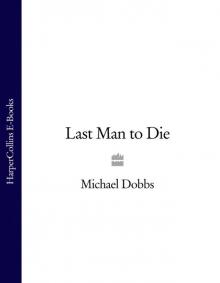 Last Man to Die
Last Man to Die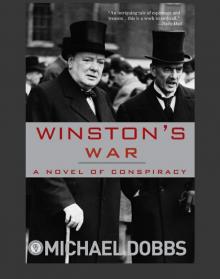 Winston's War
Winston's War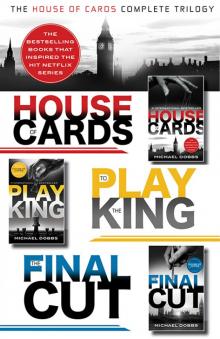 The House of Cards Complete Trilogy
The House of Cards Complete Trilogy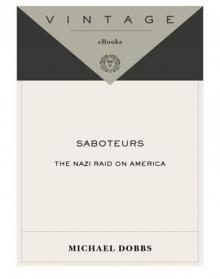 Saboteurs
Saboteurs The Touch of Innocents
The Touch of Innocents WC02 - Never Surrender
WC02 - Never Surrender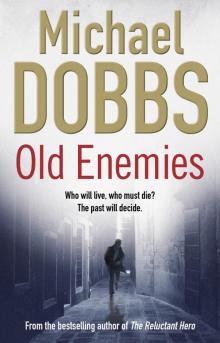 Old Enemies
Old Enemies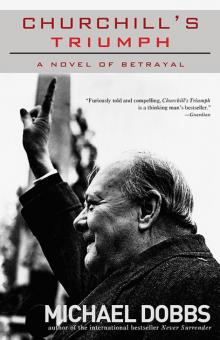 Churchill's Triumph
Churchill's Triumph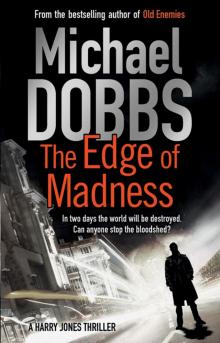 The Edge of Madness
The Edge of Madness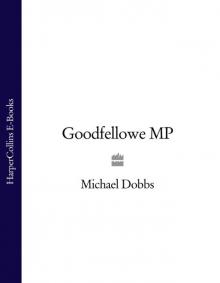 Goodfellowe MP
Goodfellowe MP The Final Cut
The Final Cut Whispers of Betrayal
Whispers of Betrayal Churchill's Hour
Churchill's Hour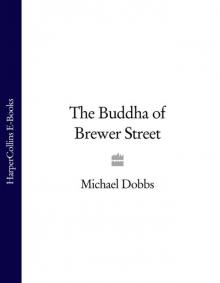 The Buddha of Brewer Street
The Buddha of Brewer Street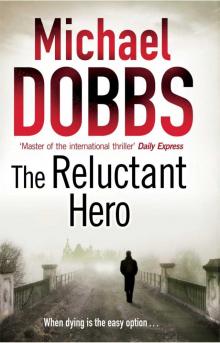 The Reluctant Hero
The Reluctant Hero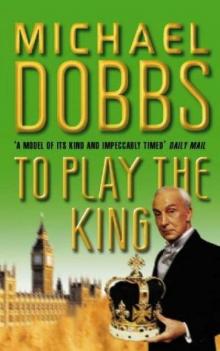 To Play the King
To Play the King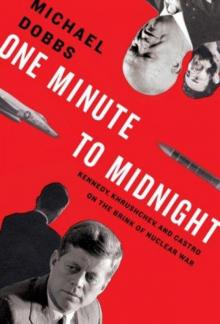 One minute to midnight
One minute to midnight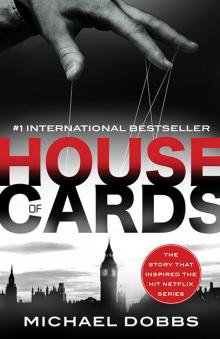 House of Cards
House of Cards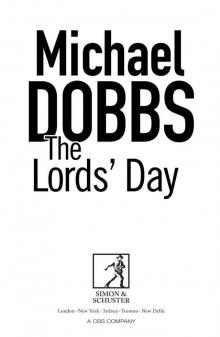 The Lords' Day (retail)
The Lords' Day (retail)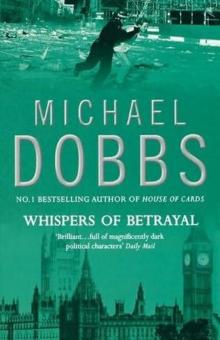 Whispers of betrayal tg-3
Whispers of betrayal tg-3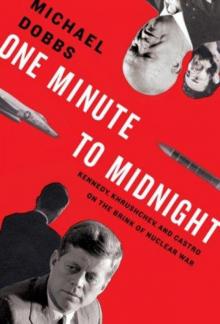 One minute to midnight: Kennedy, Khrushchev, and Castro on the brink of nuclear war
One minute to midnight: Kennedy, Khrushchev, and Castro on the brink of nuclear war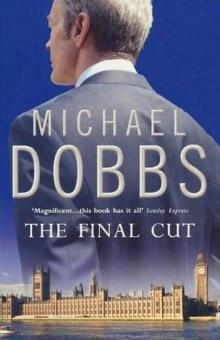 The Final Cut fu-3
The Final Cut fu-3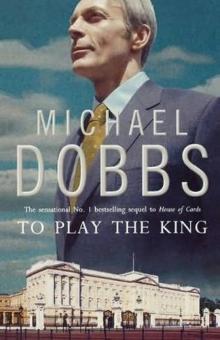 To play the king fu-2
To play the king fu-2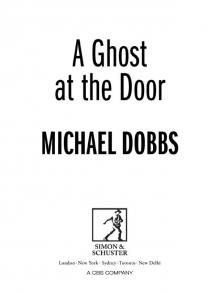 A Ghost at the Door
A Ghost at the Door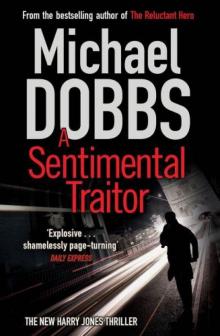 A Sentimental Traitor
A Sentimental Traitor